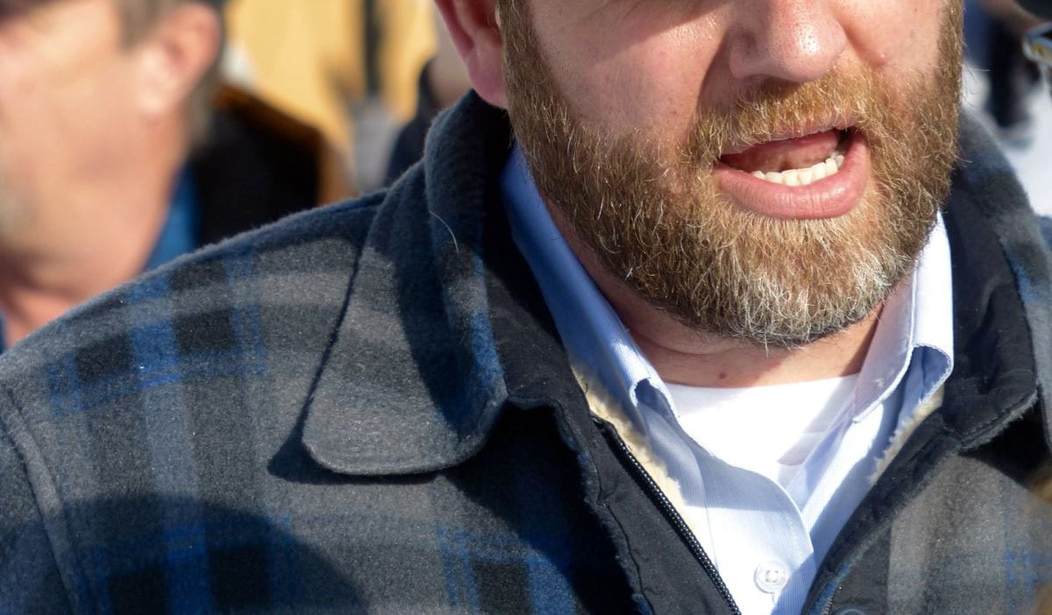On Monday, a federal judge dismissed the case against 71-year-old Nevada rancher Cliven Bundy, his two sons (42-year-old Ammon Bundy and 44-year-old Ryan Bundy), and Ryan Payne “with prejudice,” meaning the federal government cannot retry the offenders after a judge declared a mistrial last month.
U.S. District Court Judge Gloria Navarro declared a mistrial in the case on December 20, saying federal prosecutors had violated the Brady rule, requiring that prosecutors disclose evidence that could be favorable to a defendant. Navarro ruled that federal prosecutors willfully withheld evidence that the Bundys and Payne should have been able to access.
“The court finds that the universal sense of justice has been violated,” Navarro told The Los Angeles Times.
The Bundy case traces back to the 1990s, when the federal government limited grazing rights on federal lands in order to protect the desert tortoise. A full 84.9 percent of Nevada’s land area belongs to the federal government. In 1993 Bundy willfully broke the law, refused to renew his cattle grazing permit, and continued grazing his livestock on these public lands.
Bundy declared that he did not recognize the authority of the Bureau of Land Management (BLM) over the sovereign state of Nevada — a legal argument that does not square with the U.S. Constitution. Federal courts sided with the BLM against Bundy, but the rancher persisted for 20 years, and he ended up owing over $1 million in fees and fines by 2014.
That year, officials came to capture and impound the cattle trespassing on federal land. Protesters, many of them armed, tried to block the authorities. For a time, they shut down a portion of I-15, the main interstate highway through southern Nevada.
The four defendants were charged with threatening a federal officer, carrying and using a firearm, and engaging in conspiracy — felony counts that could have sent them to prison for decades.
Despite the mistrial, federal prosecutors argued in a Dec. 29 filing that they didn’t willfully withhold evidence from the defense and they still planned to launch another trial.
Assistant U.S. Attorney Steven Myhre argued that the government shared 1.5 terabytes of information — “by far, the largest review and disclosure operation in this [U.S. attorney’s office] history.”
Even so, Payne’s defense lawyers — Renee Valadares, Brenda Weksler, and Ryan Norwood — filed a briefing the same day, seeking to dismiss the case. “The government’s irresponsible and, at times, false proffers to this Court as well as its dismissiveness toward the defense inspires no confident in the prospect of fairness,” they wrote.
“A dismissal is necessary to remedy the constitutional violations, to preserve the integrity of this court’s processes, and to deter future misconduct. Anything short of dismissal is tantamount to condoning the government’s behavior in this case,” the defense lawyers concluded.
While Bundy was in violation of federal law, it is arguable that the federal government selectively attacked him while ignoring other gross violations of federal law — especially when it comes to sanctuary cities, the enforcement of Obamacare, and the “Fast and Furious” gun-walking scandal.
This case seems akin to Attorney General Jeff Sessions’ recent decision to crack down on marijuana enforcement. Federal law supported the government’s case against Bundy, as it does Sessions’ marijuana crack-down. But that does not mean government resources are well spent in enforcing this particular part of federal law while neglecting other areas.
Furthermore, Bundy’s ugly racist remarks — while celebrated by the Left — do not prove his campaign against the BLM was racist, as Victor Davis Hanson pointed out on PJ Media at the time.
While the Bundy trial did not start until 2017, when Donald Trump had become president, it should still be viewed as part of Barack Obama’s legacy, as Obama’s BLM pushed the issue. Bundy’s legal success should stand as a rebuke to the Obama administration’s selective application — and misapplication — of federal law.









Join the conversation as a VIP Member